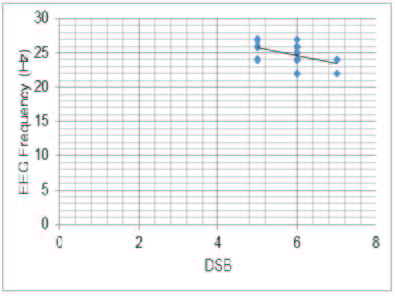Assessment of Examination Stress on Working Memory in Medical Students
Abstract
Background and Aim: Working memory has substantial importance in academic, professional and social aspects of life. Working memory deficit influences the academic performance of students irrespective of their intelligence quotient (IQ) status. Therefore, this study was designed to evaluate the working memory status owing to examination stress. Methods: Forty healthy subjects were recruited for this study and it was conducted after ethical approval from institutional ethical committee. Written consent was obtained from all participants. EEG was done in 67 students and 40 students shown α wave on EEG were selected as study subjects. Digit Span Forward (DSF), Digit Span Backward (DSB) and EEG was determined both in relax and in examination stress. Digit span and EEG was compared in relaxed and stress state. Results: Mean frequencies of EEG in relax was 9.6 Hz with SD 0.86 while in stress it was 25.9 Hz with SD 0.31. DSF in stress was 6.45 ± 1.15 and in relax state it was 7.42 ± 1.21. Mean DSB in stress was 5.7 ± 0.64 and in relaxed period it was 7.1 ± 0.74. In stress there was negative correlation between digit span and EEG. Conclusion: This study concluded that examination stress was associated with low DSF and DSB. Negative correlation between digit span and EEG suggested examination stress was a factor of working memory deficit.






